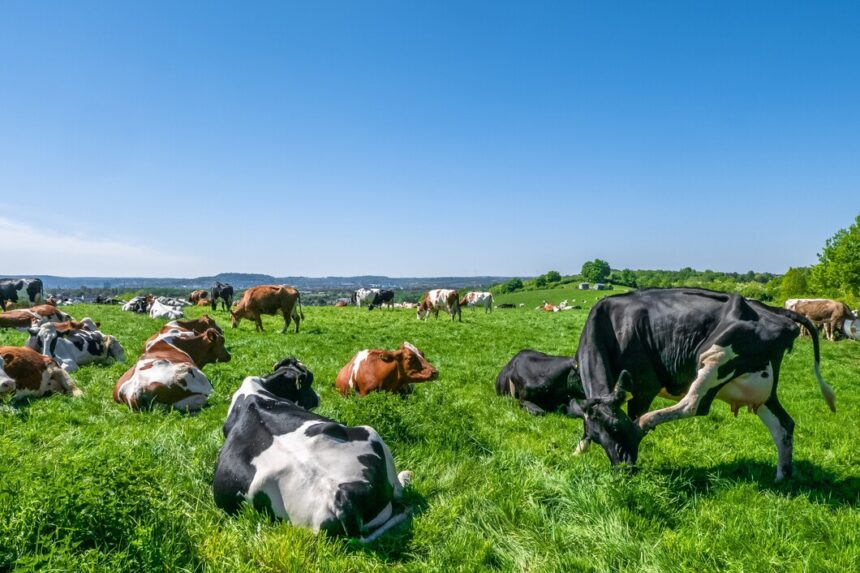Cattle farming in South Africa plays a significant role in the agricultural sector, providing livelihoods and contributing to food security. Implementing sustainable practices is crucial for ensuring the long-term viability of cattle farming while minimizing environmental impact and promoting animal welfare. Here are ten effective strategies for practicing sustainable cattle farming in South Africa:
1. Rotational Grazing:
Adopting rotational grazing systems ensures that cattle have access to fresh, nutrient-rich pasture while allowing grazed areas to recover. This practice prevents overgrazing, improves soil fertility, and enhances biodiversity on grazing lands.
2. Improving Pasture Management:
Implementing effective pasture management techniques, such as overseeding with native grasses and legumes, helps maintain pasture quality and quantity. Proper grazing management, including stocking rates and rest periods, supports sustainable forage production.
3. Water Conservation and Management:
Efficient water management practices, such as installing water troughs, pipelines, and dams, reduce water wastage and ensure reliable access to clean drinking water for cattle. Water conservation strategies also help mitigate the impact of droughts on livestock operations.
4. Nutrient Management and Soil Health:
Implementing soil testing and nutrient management plans ensures that pastures receive appropriate fertilization based on soil nutrient deficiencies. This promotes healthy pasture growth, reduces nutrient runoff, and maintains soil fertility.
5. Integrated Pest and Disease Management:
Adopting integrated pest and disease management practices minimizes the use of chemical inputs and promotes natural pest control methods. Regular monitoring, vaccination programs, and quarantine measures help prevent disease outbreaks and reduce reliance on antibiotics.
6. Conservation of Natural Resources:
Protecting and restoring natural habitats, riparian zones, and wildlife corridors on cattle farms contribute to biodiversity conservation. Establishing buffer zones along water bodies and preserving native vegetation supports ecosystem resilience and enhances farm sustainability.
7. Energy Efficiency and Renewable Energy:
Implementing energy-efficient practices, such as solar-powered water pumps and energy-saving equipment, reduces the carbon footprint of cattle farming operations. Investing in renewable energy sources, like solar panels or biogas digesters, further lowers dependency on fossil fuels.
8. Animal Welfare and Health Management:
Ensuring proper nutrition, access to shelter, and veterinary care promotes the health and well-being of cattle. Implementing humane handling practices during mustering, transportation, and slaughter adheres to animal welfare standards and enhances consumer confidence.
9. Waste Management and Recycling:
Implementing waste management strategies, such as composting manure and recycling agricultural by-products, reduces environmental pollution and nutrient loss. Recycling organic matter into nutrient-rich compost improves soil fertility and supports sustainable crop production.
10. Education and Continuous Improvement:
Investing in farmer education, training programs, and workshops on sustainable cattle farming practices fosters knowledge sharing and innovation within the industry. Keeping abreast of advancements in technology and research promotes continuous improvement in farm management practices.
Implementing sustainable cattle farming practices in South Africa requires a holistic approach that balances economic viability with environmental stewardship and social responsibility. By adopting these ten strategies—ranging from pasture management and water conservation to energy efficiency and animal welfare—farmers can enhance the resilience and productivity of their operations. Embracing sustainability not only safeguards natural resources but also positions cattle farming as a responsible and thriving sector in South Africa’s agricultural landscape. As stewards of the land and custodians of livestock, farmers play a pivotal role in shaping a sustainable future for generations to come.
Join 'Farmers Mag' WhatsApp Channel
Get the latest Farming news and tips delivered straight to your WhatsApp
CLICK HERE TO JOIN






